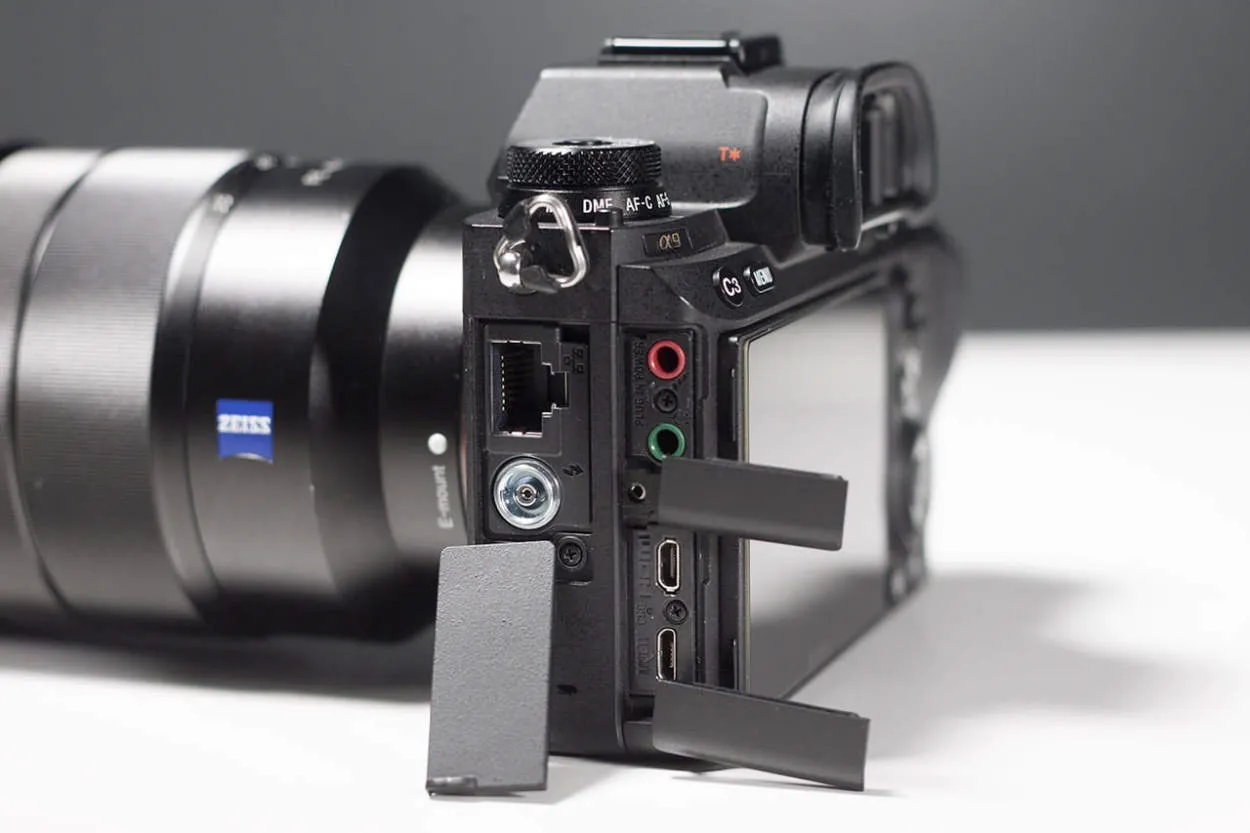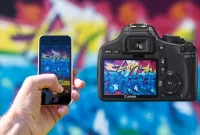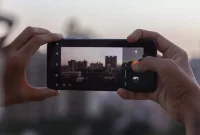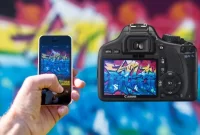In today’s digital age, most people rely on their smartphones for taking photos. However, there are distinct advantages to using a dedicated camera over a phone. With superior image quality, interchangeable lenses, manual controls, and specialized features, dedicated cameras provide photographers with greater creative control and produce professional-grade results.
Unmatched Image Quality
In today’s digital age, smartphones have become increasingly popular as the go-to device for capturing photos. However, when it comes to image quality, there is no comparison to using a dedicated camera. Here are some advantages of using a dedicated camera over a phone:
1. Larger Sensor Size
Dedicated cameras are equipped with larger sensors compared to smartphones. A larger sensor allows more light to enter, resulting in higher image quality, better low-light performance, and reduced noise in images.
2. Superior Optics
Quality lenses play a crucial role in image sharpness and clarity. Dedicated cameras offer a wide range of interchangeable lenses, allowing photographers to choose the perfect lens for different shooting scenarios. This flexibility is unmatched by smartphones.
3. Manual Controls
Dedicated cameras provide photographers with full manual control over settings such as shutter speed, aperture, and ISO. This control allows for creative freedom and the ability to capture images exactly as envisioned.
4. Advanced Features
Professional features such as RAW file format support, burst mode, advanced autofocus, and image stabilization are commonly found in dedicated cameras but limited or absent in smartphone cameras. These features enhance both the shooting and post-processing capabilities.
5. Versatility
Whether you are a professional photographer or an enthusiastic beginner, a dedicated camera offers versatility suited to various photography styles. From landscape and portrait photography to sports and wildlife photography, dedicated cameras excel in capturing every moment with precision and detail.
[Advanced Manual Controls]
When it comes to capturing photos, many people are accustomed to using their phones due to convenience. However, using a dedicated camera instead of a phone offers several advantages that should not be overlooked.
Better Image Quality
One of the key advantages of using a dedicated camera is the superior image quality it provides. Dedicated cameras typically have larger sensors, allowing them to capture more light and detail compared to phone cameras. This results in sharper, more vibrant photos with better dynamic range.
Greater Control
Another advantage is the advanced manual controls available on dedicated cameras. These controls allow photographers to adjust aperture, shutter speed, and ISO settings, giving them full control over the creative outcome of their images. Such control is often limited or absent on phone cameras.
Flexibility in Lens Options
Dedicated cameras offer the flexibility to change lenses, allowing photographers to adapt to different shooting situations. With a variety of lenses available, from wide-angle to telephoto, photographers can capture a wider range of subjects with varying perspectives and effects.
Enhanced Speed and Performance
Dedicated cameras are specifically designed for photography, which means they have faster autofocus systems and greater processing power compared to phone cameras. This allows for quick and precise focusing, enabling photographers to capture fast-moving subjects without missing crucial moments.
Improved Ergonomics
Cameras are ergonomically designed with a comfortable grip and dedicated buttons and dials, providing a more intuitive shooting experience. This allows photographers to easily and quickly access important functions, saving time and ensuring a smoother workflow.
In conclusion, while phone cameras may be convenient, the advantages of using a dedicated camera cannot be ignored. The better image quality, greater control, lens options, speed, and improved ergonomics make dedicated cameras an invaluable tool for photographers who want to take their skills to the next level.
Expandable Lens Options
In the world of photography, having a dedicated camera offers several advantages over using a phone. One significant advantage is the availability of expandable lens options.
Unlike a phone camera, which usually has a fixed lens, dedicated cameras allow photographers to switch between different lenses based on their shooting needs. This versatility enables them to capture a wide range of subjects with optimal results.
Here are some benefits of having expandable lens options:
- Wide-angle lenses: These lenses are perfect for landscape photography or capturing group shots. They provide a broader field of view, allowing you to capture more detail in your frame.
- Telephoto lenses: With telephoto lenses, you can capture distant subjects with exceptional clarity. This lens type is ideal for wildlife photography, sport events, or any situation where getting physically close to subjects is not possible.
- Macro lenses: Macro lenses are designed for close-up photography, enabling you to capture stunning details of small subjects like flowers, insects, or textures.
- Prime lenses: Prime lenses have a fixed focal length, offering excellent image quality and wider aperture options. They are popular among portrait photographers as they produce sharp subjects against a blurred background, creating a beautiful bokeh effect.
- Zoom lenses: Zoom lenses provide flexibility by offering a range of focal lengths in a single lens. They allow you to zoom in or out without changing lenses, making them convenient for various shooting situations.
By using a dedicated camera with expandable lens options, photographers can enhance their creativity and capture images that are not possible with a phone camera. Each lens type brings unique characteristics to photographs, expanding the photographer’s artistic possibilities.
So, if you are serious about photography, investing in a dedicated camera with expandable lens options is undoubtedly a wise decision.
Better Ergonomics for Comfortable Shooting
In the world of photography, the debate between using a dedicated camera or a phone for capturing images is ongoing. While phones have greatly improved their camera capabilities, there are distinct advantages to using a dedicated camera, especially when it comes to ergonomics.
One of the primary advantages of using a dedicated camera is that it is specifically designed for photography. The shape, size, and weight of a camera are optimized for comfortable shooting sessions. The grip on a camera allows for a secure hold, reducing hand fatigue during prolonged use. Additionally, dedicated cameras often have customizable controls, allowing photographers to easily adjust settings without fumbling through menus.
Another ergonomic advantage of using a dedicated camera is the presence of a viewfinder. Most cameras come with either an optical or electronic viewfinder, which allows for eye-level shooting. This not only provides a more stable shooting position but also reduces strain on the neck and back by eliminating the need to constantly look down at a phone screen.
Furthermore, dedicated cameras usually offer better battery life compared to smartphones. This means photographers can shoot for extended periods without worrying about running out of power. It also eliminates the need to carry additional battery packs, making the shooting experience less cumbersome.
Finally, using a dedicated camera gives photographers the flexibility to use a wide range of lenses. Different lenses serve various purposes and allow for creative freedom. With phones, the lens options are limited, restricting the photographer’s ability to capture different perspectives and depths of field.
Overall, while phones have made remarkable progress in camera technology, using a dedicated camera provides superior ergonomics for comfortable shooting. The optimized design, customizable controls, viewfinder, better battery life, and lens options make dedicated cameras a valuable tool for photographers.
Conclusion
In conclusion, using a dedicated camera over a phone offers several advantages. The superior image quality, manual control options, and versatility make dedicated cameras a preferred choice for professional photographers and photography enthusiasts. While phone cameras have improved significantly, they still cannot match the performance of a dedicated camera in various situations, especially under challenging lighting conditions or when zooming in on subjects. Therefore, investing in a dedicated camera can greatly enhance the quality of your photography.




